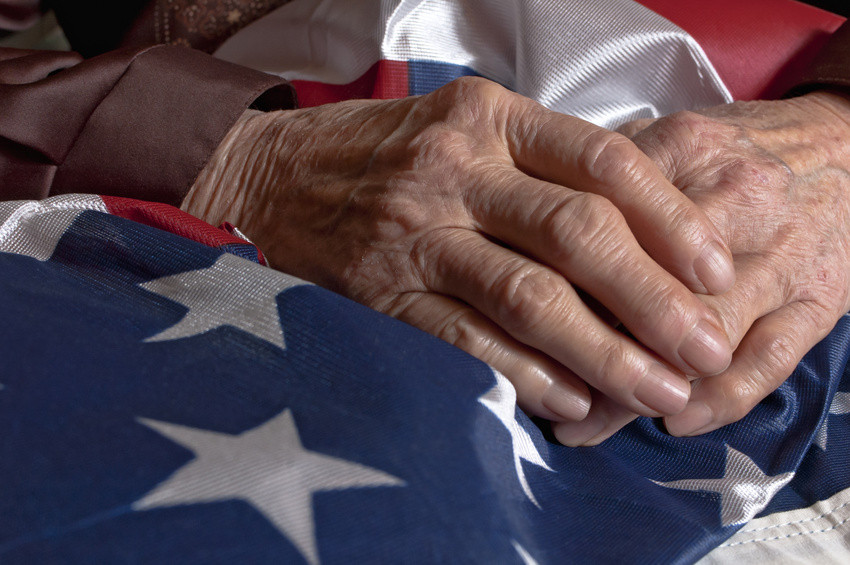 Your father is a proud Korean War Army veteran, but his health is starting to cause concern. Dad wants to stay at home for as long as possible, and one solution is the Veterans Administration’s Aid and Attendance Pension Benefit. The paperwork is submitted, and three months later you receive word that Dad’s request has been denied.
Your father is a proud Korean War Army veteran, but his health is starting to cause concern. Dad wants to stay at home for as long as possible, and one solution is the Veterans Administration’s Aid and Attendance Pension Benefit. The paperwork is submitted, and three months later you receive word that Dad’s request has been denied.
After you experience the expected range of emotions, you ask what went wrong?
First of all, it’s not the end of the world. You can reapply for Aid and Attendance, a special monthly needs-based program available to wartime veterans or surviving spouses, but you will have to wait up to a year before resubmitting the application.
There may be several factors that led to your loved one being denied Aid and Attendance. Filing for VA Aid and Attendance is a lot like filing for Medicaid: it’s complicated. People make the mistake of trying to fill out the paperwork on their own and make mistakes in the application process. Let’s start with the obvious: the actual application. Did you use the proper forms? This question isn’t meant to insult your intelligence but if you downloaded an application from the Internet, there’s the possibility you could’ve used an outdated form.
There’s the old saying about crossing every ‘T’ and dotting every ‘I’. That saying is very literal when it comes to the Aid and Attendance application. The slightest mistake will disqualify an applicant. For example, writing down a ‘Not Available (N/A)’ where a zero (0) is required may be enough to disqualify you.
The applicant may not have a reasonable physical need for the benefit. Does Dad, your grandma or Uncle Bob have problems performing two or more of the five activities of daily living (ADLs)? The ADLs are eating, bathing, toileting, dressing, and transferring (walking). If he or she only has problems with one of the ADLs, that would disqualify him or her from Aid and Attendance.
There is also an income criteria need that must be met. If Dad or Uncle Bob’s income is too great, he would be automatically denied. Also, if Dad is already receiving some type of disability from the VA, he wouldn’t be permitted to receive Aid and Attendance. He can receive his disability, Aid and Attendance, but not both. You can’t double-dip.
So what conditions would get Dad or Uncle Bob approved for Aid and Attendance? There are three qualifications to receive Aid and Attendance: service, need help of assistance (the ADLs) and financial need.
He or she must have:
- Served at least 90 days of active military duty, one day of which was during a war-time period.
- The veteran was honorably discharged from the service. When applying for this benefit, the applicant would be asked to show his discharge papers, the DD-214.
- Must be 65 years and older or totally disabled.
The dates of military service determined by the VA are as follows:
- World War II: Dec. 7, 1941 – Dec. 31, 1946
- Korean War: June 27, 1950 – Jan. 31, 1955
- Vietnam War: Feb. 28, 1961 – May 7, 1975
- Persian Gulf War: Aug. 2, 1990 – present
To qualify doesn’t mean you had to be involved in the fighting, or even in the theatre of operations. For example, Uncle Bob was in the Navy during the Vietnam War, but was stationed on Guam. Under the guidelines created by the VA, Uncle Bob could qualify.
Once applied, realize this isn’t a quick process. It might take six months or longer before you’re approved to receive Aid and Attendance. But don’t worry: once approved, the benefit is retroactive to the application date. So, if you applied on June 1, 2015, but weren ‘t approved until Dec. 1, 2015, your first benefits check would be six-months worth. The following month would contain the regularly monthly amount.
There are those veterans who may not want to bother with applying for Aid and Attendance. Remember, this program was something that was earned due to their service, or their spouse’s service, during a period of war. So, if you’re considering applying for the Aid and Attendance Benefit, please seek professional help from an accredited claims agent whose sole job description is to process VA applications.
In no way does this article presume solid legal advice. It is to serve as a consumer guide in the complicated world of long-term care and financial strategies. It is best to consult an elder law attorney who can properly advise and draw up the necessary legal documents.

